Projects
EARSC works in an increasing number of projects to bring additional resources and effort to meet our overall goal of delivering value to members. We have no goal to grow the Association, but we do have a goal to deliver more services and hence value to members. Below, you can find a description of the projects in which we are participating whilst on the linked page, you can find a history of past projects and on another one, you can find out more about working with us on future projects.
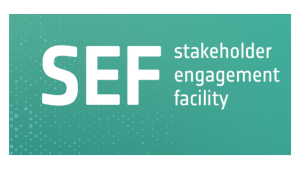
Stakeholder Engagement Facility - SEF

EuroGEO
EuroGEO, Europe’s segment of the global Group on Earth Observations (GEO) network, focuses on strategic actions to enhance Earth Observation (EO) services and products. It aims to engage a wide range of European users to identify their EO needs, leveraging European EO assets and addressing inter-connections among various groups and policy areas. The initiative promotes the demonstration, incubation, and scaling of existing EO services across Europe and beyond, fostering innovation and synergies. It also connects European EO research communities, service providers, and users for mutual learning and the dissemination of successful practices. Additionally, EuroGEO supports the development of a European digital ecosystem for EO data, benefiting businesses, citizens, and researchers, and consolidates national GEO management structures across Europe to promote informed decision-making.
For more information about the project visit: https://www.spacesuite-project.eu/

spaceSUITE
SpaceSUITE is an ERASMUS+ Blueprint project for the development of innovative resources for education and training , that aims to bridge the gap, foster collaboration, and exchange knowledge, addressing skills shortages in the downstream space sector with innovative education and training resources. EARSC provides the industry views on this initiative.
For more information about the project visit: https://www.spacesuite-project.eu/

OCEANIDS
OCEANIDS aims at building user-driven applications and tools, which act as an enabling technological layer for regional authorities & stakeholders in order to achieve a more resilient and inclusive systemic pathway to a Blue Economy in coastal regions. Under a single-access window platform for Climate- Informed Maritime Spatial Planning (CI-MSP), the project will allow a more integrated seascape man- agement of coastal regions. The overarching concept is to collect, harmonise and curate existing climate data services, making data accessible, reusable and interoperable for the development of local adaptation strategies. OCEANIDS facilitates access to knowledge, data & digital services critical for better understanding and managing climate risks, enhancing adaptive capacities and supporting transformative innova- tions.
For more information about the project visit: https://www.oceanids-project.eu/media/
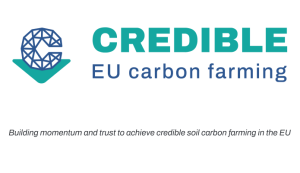
CREDIBLE
Credible is an EU-funded coordination and support action. Its main goal is to build consensus on the methodologies that could maximise the capacity of soils to act as carbon sinks. To know more, explore the consensus-building process.
For more information about the project visit: https://www.project-credible.eu/

VALORADA
VALORADA aims at co-developing tested FAIR customizable data-manipulation tools to access available climate datasets and to enable the sharing, community validation, and use of local socioeconomic, demographic, and Earth-Observation data. The consortium will make available prototype climate data and non-climate data manipulation tools to support and improve existing data portals and platforms and to enable user-oriented multi-data integration. VALORADA aims to reach TRL 7 and above. Additional activities include capacity-building schemes for end users as well as providers of climate services. VALORADA will explore and assess the options to facilitate the connection of the VALORADA data tools to the Copernicus Atmosphere Data Store.
For more information about the project visit: https://valorada-project.eu/

SDGs-EYES
SDGs-EYES project aims at boosting the European capacity for monitoring the SDGs based on Copernicus, building a portfolio of decision-making tools to monitor some SDG indicators related to the environment from an inter-sectoral perspective, aligning with the EU Green Deal priorities and challenges
For more information about the project visit: http://sdgs-eyes.eu/

GREAT
The GREAT project, funded by the Digital Europe program, aims to establish the Green Deal Data Space Foundation and its Community of Practice which builds on both the European Green Deal and the EU’s Strategy for Data. The project will deliver a roadmap for implementing and deploying the Green Deal Data Space, an infrastructure that will allow data providers and initiatives to openly share their data to tackle climate change in a multidisciplinary manner.
More information about the project at: https://www.greatproject.eu/
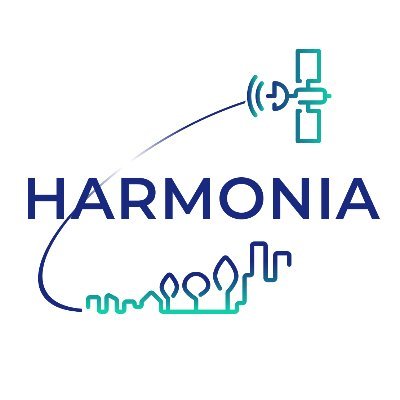
HARMONIA
HARMONIA is a H2020-funded initiative which supports cities and local communities to tackle Climate Change effects. The project consortium composed of 22 partners develops a resilience assessment platform to help urban stakeholders understand and quantify Climate Change effects. HARMONIA platform will offer a userfriendly knowledge base, dispensing detailed information on a local neighbourhood and street level.
This will support local decision making and foster a wide range of applications dedicated to climate adaptation and mitigation, such as Carbon Capture and Storage technologies. HARMONIA with EARSC’s contribution will put the EO sector together with urban communities, municipalities, local governments, citizens, and key stakeholders from the urban development area towards greener and more resilient future.
More information about the project at: http://harmonia-project.eu/about/
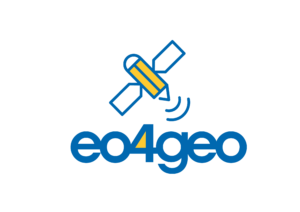
EO4GEO Alliance
EO4GEO is an Erasmus+ Sector Skills Alliance gathering 26 partners from 13 EU countries, most of which are part of the Copernicus Academy Network. Be they from academia, public or private sector, they are all active in the education and training fields of the space / geospatial sectors.
EO4GEO aims to bridge the skills gap between the supply and demand of education and training in the space/geospatial sectors, fostering the uptake and integration of space/geospatial data and services in a broad range of application domains.
More information about the project at www.eo4geo.eu
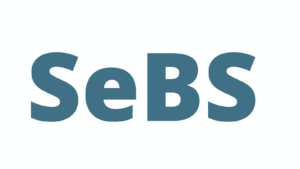
SeBS
The SeBS project – Through a series of case studies, EARSC aims to gather quantitative evidence that the usage of Copernicus Sentinel data provides an effective and convenient support to various market applications. These studies are undertaken in the frame of the project “Showcasing the benefits brought by the usage of Sentinels data to society, environment and economy: a bottom-up assessment based on traceable impacts along selected value chains”, under an assignment from the European Space Agency (ESA) funded by the European Union as part of the Copernicus Programme.
More information about the project: https://earsc.org/sebs/
